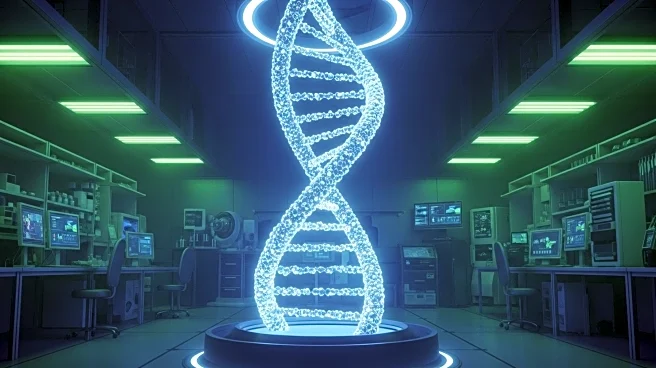What is the story about?
What's Happening?
Colossal Biosciences, a Dallas-based biotech company, has announced a significant advancement in its efforts to resurrect the extinct dodo bird. The company has successfully grown primordial germ cells from the rock dove, a precursor step necessary for the de-extinction process. These cells are essential for creating eggs and sperm, and the next phase involves gene-editing these cells from the Nicobar pigeon, the dodo's closest living relative. This development is part of Colossal's broader initiative to use de-extinction technology for conservation purposes. The company has also established a breeding colony of Nicobar pigeons in Texas to facilitate this process. The ultimate goal is to reintroduce a dodo-like bird to its native habitat in Mauritius.
Why It's Important?
This breakthrough represents a potential shift in conservation strategies, offering new tools for genetic rescue of endangered species. By developing protocols to grow and edit primordial germ cells, Colossal is paving the way for innovative conservation methods that could help prevent the extinction of other species. The project also raises ethical and scientific questions about the feasibility and implications of de-extinction. While some see it as a means to restore lost biodiversity, critics argue that true resurrection is impossible without intact genomes, and the result may only be a genetically modified proxy. Nonetheless, the technology could have significant impacts on biodiversity conservation and the preservation of endangered species.
What's Next?
Colossal plans to inject the gene-edited Nicobar germ cells into chicken embryos, which would act as surrogates. This process could eventually lead to the hatching of a dodo-like bird. The company aims to rewild these birds in Mauritius, where the dodo was originally endemic. Additionally, Colossal is pursuing other de-extinction projects, including efforts to bring back the woolly mammoth and the Tasmanian tiger. The success of these projects could influence future conservation policies and strategies, potentially leading to broader acceptance and application of genetic technologies in wildlife preservation.
Beyond the Headlines
The ethical implications of de-extinction are significant, as they challenge traditional conservation methods and raise questions about human intervention in natural processes. The potential to bring back extinct species could alter ecosystems and biodiversity in unforeseen ways. Moreover, the focus on de-extinction might divert resources from protecting currently endangered species. The long-term cultural and ecological impacts of reintroducing extinct species into modern ecosystems remain uncertain, necessitating careful consideration and regulation.
















